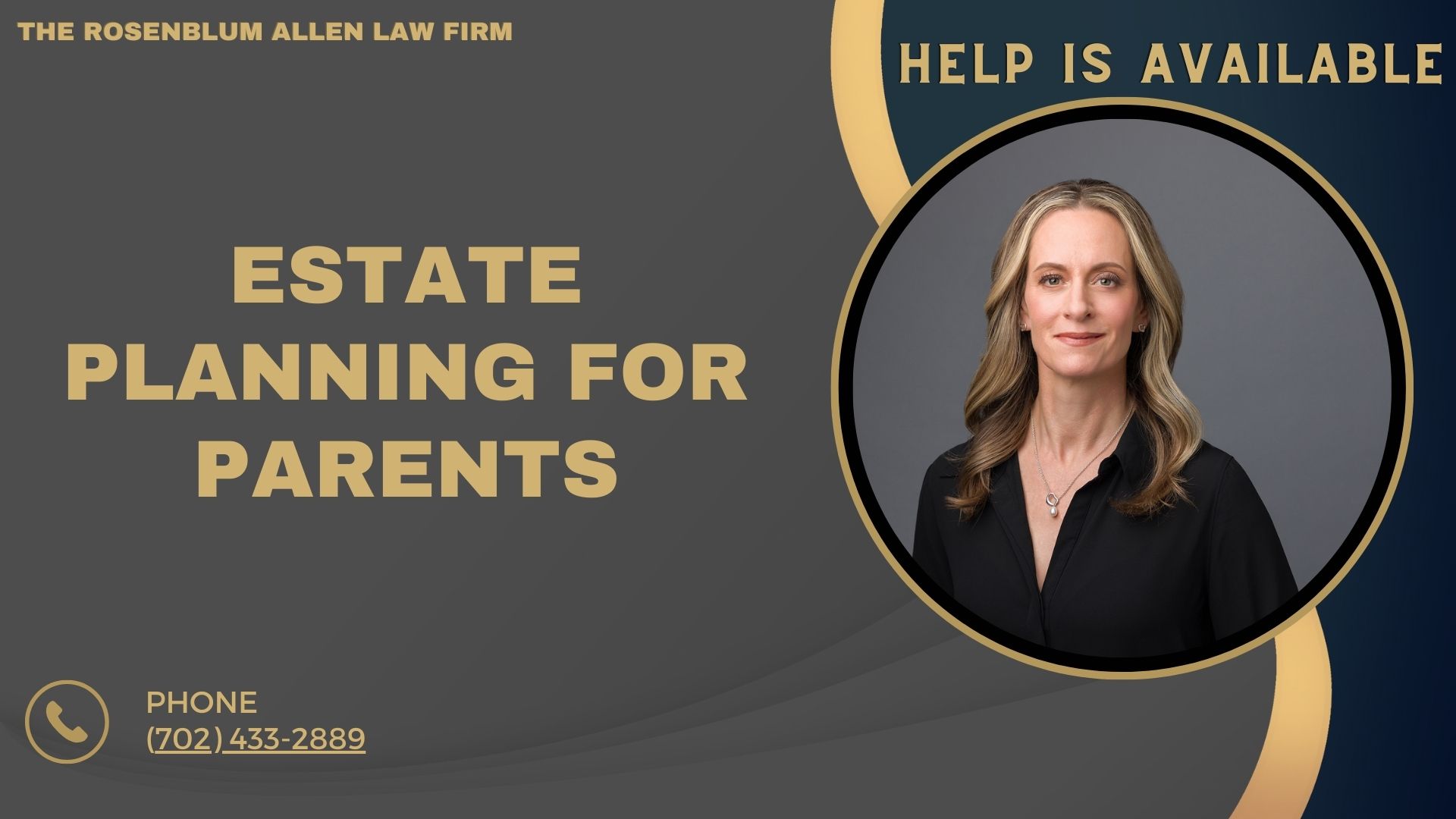Estate planning is essential for parents who want to protect their families’ financial and legal futures. By creating a clear plan, parents can ensure their wishes are honored, their children are cared for, and family disputes are minimized. Despite its importance, estate planning must be more understood and timely, leaving families vulnerable to avoidable risks.
This guide explores the key steps, documents, and considerations involved in estate planning for parents, helping you secure peace of mind for your family’s future.
Understanding Estate Planning Basics
What is Estate Planning?
Estate planning is the process of organizing your financial, medical, and legal affairs to ensure your wishes are followed after your death or in the event of incapacitation. The primary goals include:
- Protecting Assets: Ensuring property, savings, and other assets are distributed according to your wishes.
- Guardianship: Determining who will care for minor children.
- Healthcare Preferences: Making decisions about medical care if you cannot communicate.
Key documents in estate planning include:
- Wills
- Trusts
- Powers of Attorney
- Advance Directives
Why Estate Planning is Crucial for Parents
For parents, estate planning is not just about distributing assets but protecting their children’s future.
- Guardianship: Legally designate someone you trust to care for your children.
- Financial Security: Ensure resources for your children’s upbringing and education are available.
- Conflict Reduction: Minimize disputes among family members over guardianship or inheritance.
When to Start Estate Planning
Parents should begin estate planning as soon as possible, especially after significant life changes such as:
- The birth or adoption of a child
- Marriage, divorce, or remarriage
- Significant financial changes, such as buying a home or receiving an inheritance
Regularly reviewing and updating your estate plan ensures it stays aligned with your evolving family needs.
Key Components of Estate Planning for Parents
Wills and Trusts
Importance of a Will
A will is the foundation of any estate plan. It allows you to:
- Specify how assets will be distributed.
- Appoint a guardian for minor children.
- Name an executor to manage your estate.
Without a will, state laws determine asset distribution, which may not align with your wishes.
How Trusts Work and Their Benefits
Trusts are legal arrangements that hold assets for beneficiaries, offering flexibility and protection. Common trust types include:
- Revocable Living Trust: Allows changes during your lifetime and avoids probate.
- Irrevocable Trust: Provides tax benefits and asset protection but cannot be changed easily.
- Testamentary Trust: Created through a will and activated after death.
Trusts can help parents:
- Manage distributions for minor children.
- Protect assets from creditors.
- Reduce estate taxes.
Guardianship Designations
Choosing a Guardian for Minor Children
Designating a guardian ensures your children are cared for by someone you trust if you pass away. Factors to consider include:
- Values Alignment: Does the guardian share similar parenting values and beliefs?
- Stability: Is the guardian financially and emotionally prepared to take responsibility?
- Relationship: How close is the guardian to your children?
Backup Guardians: Why They Matter
Life is unpredictable, and a backup guardian always ensures someone is prepared to step in if your primary choice cannot serve.
Addressing guardianship thoroughly provides clarity and stability for your children in difficult circumstances.

Powers of Attorney
Durable Power of Attorney for Finances
A durable power of attorney lets you choose someone to manage your finances if you cannot. This person, called your “agent,” can handle:
- Paying bills
- Managing bank accounts
- Overseeing investments
- Handling property transactions
Choosing someone you trust is vital. It’s best to discuss your choice with this person beforehand to ensure they are willing to take on the responsibility.
Healthcare Power of Attorney for Medical Decisions
A healthcare power of attorney designates someone to make medical decisions for you if you cannot. Your agent can:
- Approve or decline medical treatments
- Decide on surgery options
- Communicate your wishes to healthcare providers
This document ensures that your medical care aligns with your values. Without it, doctors or courts may make these decisions instead.
Advance Directives
Living Wills: Ensuring Your Medical Preferences Are Followed
A living will outline your wishes regarding medical treatment if you’re incapacitated or terminally ill. For example, you can specify:
- Whether you want life support
- Your preferences for pain management
- Instructions for organ donation
It helps relieve family members of guessing what you would want.
Do-Not-Resuscitate (DNR) Orders
A DNR order instructs healthcare providers not to perform CPR if your heart stops or you stop breathing. This is a personal decision often made by individuals with terminal illnesses or advanced health conditions.
A DNR order as part of your estate plan ensures your wishes are followed, even in emergencies.

Financial Planning in Estate Planning
Life Insurance Considerations
Life insurance provides financial security for your family. It’s especially important for parents, as it can:
- Cover daily living expenses
- Pay for your children’s education
- Pay off debts, like a mortgage or credit cards
Here’s a quick comparison of life insurance options:
| Type of Policy | Key Features | Best For |
|---|---|---|
| Term Life Insurance | Coverage for a set term (10-30 yrs) | Affordable and straightforward |
| Whole Life Insurance | Lifetime coverage, builds cash value | Long-term planning |
| Universal Life Insurance | Flexible premiums and benefits | Customizable plans |
Discuss your needs with an advisor to choose the best policy for your family.
College Savings Plans
Saving for your children’s education can be critical to your estate plan. Options include:
- 529 Plans: Tax-advantaged accounts for education expenses.
- Custodial Accounts (UTMA/UGMA): Savings accounts held in a child’s name.
Integrating these plans into your estate planning ensures your children’s education is funded, even if you’re no longer there.
Debt Management and Estate Planning
Debt doesn’t disappear when you pass away. Creditors may claim a portion of your estate to pay off debts. Here’s how to address this:
- Identify all debts, including mortgages, car loans, and credit cards.
- Ensure life insurance or assets can cover them.
- Discuss strategies with your attorney to protect other assets for your beneficiaries.
By managing debts as part of your estate plan, you reduce the financial burden on your family.
Beneficiary Designations
What Are Beneficiary Designations?
Beneficiary designations specify who will receive certain assets after your death. These designations are typically associated with:
- Life insurance policies
- Retirement accounts (e.g., 401(k) or IRAs)
- Payable-on-death (POD) bank accounts
These assets are transferred directly to the named beneficiary and avoid probate.
Keeping Beneficiaries Updated
Life changes can impact your beneficiary choices. Review and update designations after significant events, such as:
- Marriage or divorce
- Birth or adoption of a child
- Death of a previously named beneficiary
An outdated designation can lead to unintended consequences. For example, if an ex-spouse is still listed, they may receive the asset instead of your children.
Primary vs. Contingent Beneficiaries
It’s important to list both primary and contingent beneficiaries.
- Primary beneficiary: The first person to receive the asset.
- Contingent beneficiary: The backup who inherits if the primary beneficiary is unable or unwilling to accept.
By naming contingent beneficiaries, you create a safety net for asset distribution.

Planning for Special Needs Children
Understanding Special Needs Trusts
A special needs trust ensures that children with disabilities are cared for without jeopardizing their eligibility for government benefits. Funds in the trust can be used for:
- Medical expenses
- Education and training
- Personal care and support services
Unlike a direct inheritance, special-needs trust assets are not counted as personal assets for benefits eligibility.
Choosing a Trustee
The trustee manages the trust and oversees distributions. Look for someone who:
- Understand your child’s unique needs
- Is financially responsible
- Can dedicate time to the role
You may also consider a professional trustee or a financial institution to handle the trust.
Letter of Intent
A letter of intent is not a legal document but provides guidance for your child’s care. It can include:
- Daily routines
- Medical history
- Your child’s preferences and dislikes
This document helps caregivers maintain consistency in their child’s life.
Minimizing Estate Taxes
Understanding Estate Taxes
Estate taxes apply to the transfer of assets after your death. While most estates don’t reach the federal taxable threshold, state taxes can vary. It’s essential to know the rules in your area.
Strategies to Reduce Estate Taxes
There are several ways to minimize estate taxes, including:
- Gifting During Your Lifetime: Federal law allows you to give up to a certain amount per year, per person, tax-free.
- Charitable Donations: Donating to qualified charities can reduce the taxable value of your estate.
- Trusts: Certain trusts, like irrevocable life insurance trusts, can lower the estate’s taxable value.
Here’s a table summarizing common tax-reduction strategies:
| Strategy | Key Benefit | Best Use Case |
|---|---|---|
| Annual Gifting | Reduces estate size over time | For large estates |
| Charitable Donations | Provides tax deductions | To support favorite causes |
| Irrevocable Trusts | Shields assets from estate taxes | High-value assets |
Working with Professionals
Estate tax planning is complex. Consider consulting with an attorney or financial advisor to ensure you take advantage of all available options.
Protecting Digital Assets
Identifying Your Digital Assets
Digital assets are an often-overlooked part of estate planning. Examples include:
- Online banking and investment accounts
- Social media profiles
- Email accounts
- Digital photos, videos, and music libraries
These assets may have monetary or sentimental value and should be included in your estate plan.
How to Include Digital Assets in Your Estate Plan
To protect your digital assets:
- Create a detailed inventory of your accounts and passwords.
- Specify who will manage these assets after your death.
- Use tools like password managers to make access easier for your executor.
Digital Legacy Instructions
Some platforms, like Facebook and Google, allow you to set legacy contacts or provide posthumous account management instructions. Take advantage of these options to ensure your digital footprint is handled according to your wishes.

Communicating Your Estate Plan to Your Family
Why Communication is Key
Creating an estate plan is essential, but sharing it with your family is just as crucial. Clear communication can:
- Avoid misunderstandings
- Minimize potential conflicts
- Ensure everyone knows your wishes
Your family shouldn’t be surprised by your decisions. A well-informed family is better prepared to honor your intentions.
How to Discuss Estate Plans with Your Family
Starting the conversation can feel awkward, but these tips can help:
- Choose the Right Time: Pick a calm moment, like a family gathering or a one-on-one conversation.
- Be Transparent: Share the reasons for your choices, such as guardianship or asset distribution.
- Address Sensitive Topics: Acknowledge potential concerns and explain your decisions clearly.
- Involve Key Players: Speak directly with your executor, guardians, and agents so they understand their roles.
These discussions build trust and reduce surprises later.
Common Questions Family Members May Have
Be prepared to answer these typical questions:
- Why did you choose a particular guardian or executor?
- How will assets be distributed?
- What should they do if something happens to you?
Open communication ensures that your family members feel included and respected.
Updating Your Estate Plan
When to Review Your Estate Plan
Your estate plan isn’t a one-time task. It should grow with your family and financial situation. Review and update it after life events like:
- Marriage, divorce, or remarriage
- Birth or adoption of a child
- Significant financial changes, like buying a home or starting a business
- Death or incapacity of a named guardian, executor, or beneficiary
Regular reviews ensure your plan remains accurate and relevant.
Steps to Update Your Plan
- Reassess Your Goals: Consider whether your priorities have shifted.
- Consult Professionals: Work with your attorney or financial advisor to make necessary changes.
- Communicate Updates: Let key individuals know about the changes, significantly if their roles are affected.
Updating your estate plan shows your commitment to protecting your family’s future.

The Role of Professionals in Estate Planning
Attorneys
An estate planning attorney is essential for creating a legally sound plan. They can help with:
- Drafting wills and trusts
- Navigating complex legal requirements
- Minimizing tax liabilities
Working with an attorney ensures your documents are valid and enforceable.
Financial Advisors
A financial advisor helps you align your estate plan with your financial goals. They can assist with:
- Investment strategies
- Life insurance policies
- Retirement account planning
Their expertise can maximize your family’s financial security.
Accountants
Accountants play a crucial role in handling tax considerations. They can:
- Advise on tax-saving strategies
- Ensure compliance with state and federal tax laws
- Prepare necessary tax documents
Together, these professionals form a team to guide you through the estate planning process.
The Importance of Keeping Records
What Records Should You Keep?
Keeping detailed records is essential for your estate plan. These records help your family and executor carry out your wishes without confusion. Key documents to maintain include:
- Your will and any trusts
- Powers of attorney and advance directives
- Beneficiary designations for accounts and policies
- Property deeds and titles
- Financial account information, including bank and investment accounts
- Tax returns
You should also keep a list of your digital assets and instructions for accessing them.

Estate Planning Mistakes to Avoid
Common Pitfalls in Estate Planning
Even with the best intentions, mistakes can happen. Here are some common errors:
- Not Having a Plan: Many people delay estate planning, leaving their families unprotected.
- Failing to Update Documents: Life changes can make your plan outdated.
- Ignoring Beneficiary Designations: These can override the instructions in your will.
- Choosing the Wrong Executor: The role requires someone trustworthy and capable.
- Overlooking Digital Assets: Neglecting to include online accounts can cause unnecessary complications.
How to Avoid These Mistakes
- Start Early: The sooner you begin, your family will be better prepared.
- Review Regularly: Schedule annual reviews to keep your plan up to date.
- Work with Professionals: Attorneys and advisors can help avoid legal and financial missteps.
- Communicate Clearly: Make sure your family knows your intentions to prevent disputes.
The Cost of Mistakes
Errors in estate planning can lead to:
- Delays in asset distribution
- Increased legal fees
- Family conflicts
You can protect your loved ones from unnecessary stress by addressing potential pitfalls upfront.
Taking the First Steps Toward Estate Planning
Where to Begin
Estate planning can feel overwhelming, but breaking it into steps makes it manageable:
- Assess your assets and debts.
- Identify your goals and priorities.
- Choose key individuals, like guardians, executors, and agents.
- Consult with professionals to draft legal documents.
Using a Checklist
A checklist helps ensure you cover all the essential aspects. Here’s a basic one to get started:
- Write a will
- Designate powers of attorney
- Create advance directives
- Review beneficiary designations
- Consider trusts for specific needs
The Peace of Mind That Comes With Planning
Estate planning is about more than paperwork. It’s about protecting your family and ensuring your wishes are honored. Taking the first steps now means less stress later—for you and the people you care about.

Breaking It All Down
Estate planning for parents is about much more than just passing down assets—it’s about securing your family’s future and ensuring your loved ones are taken care of, no matter what. With thoughtful planning, you can protect your children, manage your assets, and ensure your wishes are followed.
By creating a comprehensive estate plan, you provide clarity and security for your family. Start early, review regularly, and involve trusted professionals to guide you. Estate planning may seem overwhelming initially, but the peace of mind it brings you and your family is well worth the effort.
Start today. Your family’s future will thank you.

Frequently Asked Questions
What is estate planning, and why is it important for parents?
Estate planning is arranging for managing and distributing your assets after you pass away. For parents, it’s essential because it ensures their children are cared for and their wishes are honored. It also helps minimize the stress and confusion your family may face during a difficult time.
What documents are included in an estate plan?
An estate plan typically includes:
- A will
- Trusts (if applicable)
- Power of attorney
- Health care directives (living will)
- Beneficiary designations
- These documents work together to ensure your wishes are carried out, and your family is protected.
Do I need an attorney for estate planning?
While you can use online tools or templates, working with an attorney ensures your estate plan is legally sound and tailored to your needs. An attorney can also help you navigate complex issues like minimizing taxes or establishing trusts.
How often should I update my estate plan?
You should review your estate plan at least once a year or after significant life events such as:
- Marriage or divorce
- Birth or adoption of children
- Death of a beneficiary or executor
- Significant financial changes
Regular updates keep your plan relevant and effective.
What happens if I don't have an estate plan?
Without an estate plan, state laws will determine how your assets are distributed, and the court will decide guardianship for your children. This can lead to delays, increased costs, and decisions that may not align with your wishes.
Can my estate plan address digital assets?
Yes, a comprehensive estate plan can include provisions for your digital assets. This may involve listing online accounts, social media profiles, digital files, and instructions for accessing or distributing them.
How do I choose an executor for my estate?
An executor ensures your estate is settled according to your wishes. Choose someone trustworthy, organized, and capable of handling financial and legal responsibilities. It’s often a good idea to have a backup executor if your first choice is unavailable.
Is there a minimum age to start estate planning?
There’s no age requirement for estate planning, but starting as soon as you have dependents or significant assets is a good idea. Estate planning can provide peace of mind, knowing that your wishes will be followed if something happens to you.
What is the difference between a will and a trust?
A will is a legal document that dictates how your assets will be distributed after death. At the same time, a trust allows you to place assets into a legal arrangement that can benefit your beneficiaries during your lifetime or after your death. Trusts can offer more privacy and flexibility compared to wills.

Additional Resources for You from The Rosenblum Allen Law Firm.
For more in-depth guidance on estate planning for blended families and related topics, check out these helpful links:
Las Vegas Estate Planning Attorney
Learn how an experienced estate planning attorney in Las Vegas can help you create a customized plan to protect your family and assets.
Las Vegas Trust Attorney
Discover how trusts can be a powerful tool for asset protection and inheritance planning, especially for blended families.
Tips on Estate Planning
Get practical tips and actionable advice to make estate planning smoother and more effective for your unique family dynamics.
Estate Planning Checklist
This step-by-step checklist ensures you cover all essential elements of your estate plan, from wills to trusts and beneficiary updates.
Making a Will
Understand the importance of a legally valid will and how it can secure your family’s future, avoiding confusion and disputes.
Estate Planning Services
Explore comprehensive estate planning services to protect your assets, minimize taxes, and ensure your wishes are carried out.
Estate Planning Mistakes
Avoid common pitfalls in estate planning that can lead to unintended consequences, delays, and financial hardship for your family.
Estate Planning Probate
Learn how to navigate probate effectively and discover ways to minimize its impact through proper estate planning.
Las Vegas Asset Protection Attorney
Find strategies to shield your hard-earned assets from creditors, lawsuits, and other risks with the help of an asset protection attorney.
These resources will help you make informed decisions about your estate plan and provide the tools you need to protect your family’s future. Don’t hesitate to explore them to get the clarity and guidance you deserve.

Offsite Resources for You
AARP – https://www.aarp.org
A comprehensive resource for seniors, offering estate planning tips, financial advice, and information on creating wills and trusts.
National Academy of Elder Law Attorneys (NAELA) – https://www.naela.org
An excellent resource for finding attorneys specializing in elder law and estate planning, especially for families with aging parents.
American Bar Association (ABA) – https://www.americanbar.org
Provides guides, tools, and resources for those seeking to learn more about estate planning, including links to find an attorney.
National Association of Estate Planners & Councils (NAEPC) – https://www.naepc.org
It offers resources for families looking for estate planning professionals and includes a directory of credentialed advisors.
Estate Planning Council of Northern California – https://www.epcnorcal.org
A resource for those seeking information and professionals focused on estate planning, trust management, and wealth transfer.
LegalZoom – https://www.legalzoom.com
A helpful platform for creating wills, trusts, and other estate planning documents with user-friendly online tools and professional advice.
Trust & Will – https://www.trustandwill.com
A digital estate planning service that allows you to create a will or trust online, with step-by-step guidance and options for personalization.

A Special Message from Our Lead Attorney, Molly Rosenblum Allen, Esq

Thank you for taking the time to read through our resources. I hope you found the information helpful as you begin to think about your estate planning needs. If you’re ready to get the ball rolling and discuss your specific situation, my team and I are here to help. Please don’t hesitate to give us a call at (702) 433-2889. We look forward to speaking with you and guiding you through this important process.
Best regards,
Molly Rosenblum Allen, Esq.
The Rosenblum Allen Law Firm





